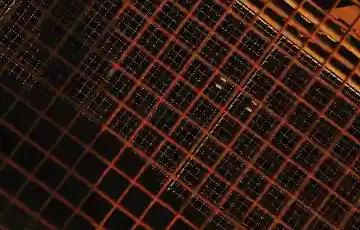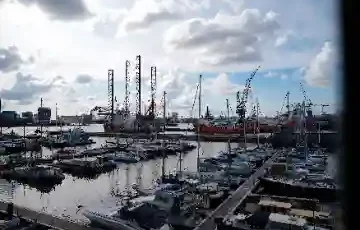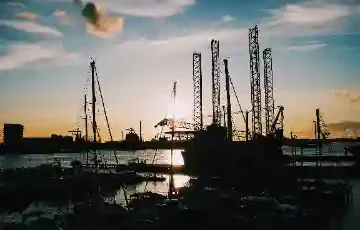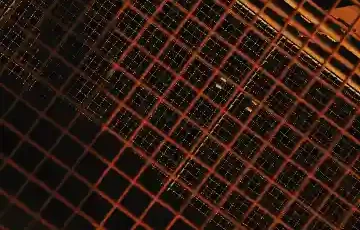Legal advice in the Netherlands on waste management encompasses permit procedures, enforcement matters, contract negotiations, and environmental compliance for waste processing companies, recycling enterprises, and demolition businesses according to Dutch legislation including the Environment and Planning Act and the Buildings Decree.
The waste sector continuously evolves through new regulations, sustainability requirements, and the transition toward a circular economy. Entrepreneurs in this dynamic sector face daily legal challenges where specialist knowledge proves essential. From permit applications to enforcement proceedings: legal advice prevents costly errors and ensures lawful business operations. The Netherlands processes tens of billions of kilograms of waste annually, with emphasis shifting from landfilling and incineration toward reuse and recycling.
Lawyers specializing in waste law guide entrepreneurs through complex legislation and optimize waste material and recycling processes. Therefore, you gain clear insight into legal aspects relevant to your waste processing activities.
What legal challenges exist in the waste sector under Dutch law?
Primary legal challenges concern permit obligations under the Environment and Planning Act, enforcement issues for non-compliance, contractual arrangements with suppliers and customers, and compliance with recycling targets according to European and national regulations including the Circular Materials Plan.
Within 50 words: Since January 1, 2024, businesses conducting permit-required activities under the Environment and Planning Act must potentially provide financial security of €10,000 to €500,000 depending on risk levels.
The waste and recycling industry operates within a complex legal framework. However, entrepreneurs face constantly changing rules. Moreover, this financial security ensures that societal risks are covered when your company can no longer meet permit obligations.
Mobile crushing of construction and demolition waste falls under the Buildings Decree since implementation of the Environment and Planning Act. Previously, rules from the Mobile Crushing Construction and Demolition Waste Decree applied. Furthermore, storage duration of waste materials changes: a maximum term of 1 to 3 years now applies, depending on processing purpose. Consequently, enforcement authorities act upon exceeding these limits.
Additionally, the question when waste material ceases to be waste plays a crucial role in the circular economy. European end-of-waste criteria determine when material loses its waste status. According to Dutch case law, the burden of proof rests primarily with the producer to demonstrate end-of-waste status. Nonetheless, the competent authority can provide a legal judgment on this status.
Do you need certainty about your legal position in permit procedures or enforcement matters? Specialized lawyers analyze your situation and advise on the optimal strategy within waste regulations and environmental legislation.
How does permit licensing work for waste processing companies in the Netherlands?
Permit licensing for waste processing proceeds according to the Environment and Planning Act through an environmental permit for industrial facilities. This permit integrates various aspects: environmental effects, spatial planning, and construction activities. Moreover, your application must demonstrate that activities comply with general rules from the Activities Decree.
The competent authority assesses your application within statutory deadlines. For instance, the standard procedure takes 8 weeks, but complex applications require the extended preparation procedure of 26 weeks. Subsequently, the competent authority can impose conditions regarding emissions, noise, odor, and storage capacity.
Financial security becomes mandatory for high-risk activities. Specifically, you as a waste processing company must provide assurance that you can remediate damage and continue meeting permit conditions. This security takes the form of a bank guarantee or surety bond ranging from €10,000 for small operations to €500,000 for large-scale hazardous waste facilities.
For specific activities, additional rules apply:
- Mobile crushing at demolition sites requires notification according to the Buildings Decree
- Storage of waste materials may last maximum 1 year for incineration or 3 years for other processing
- Cross-border transport of waste requires separate notification procedures
- Asbestos removal involves strict conditions in the permit
Municipalities, provinces, or the national government function as competent authority, depending on scale and impact of your activities. Therefore, determining the correct authority prevents procedural delays.
What are important contractual aspects in the waste sector under Dutch law?
Contracts in the waste sector regulate relationships between waste producers, collectors, processors, and buyers of secondary raw materials, with critical clauses covering liability limitations, ownership transfer, quality specifications, and price adjustment mechanisms to protect against commercial and environmental risks.
Within 50 words: Contractual liability limitations must comply with Article 6:248 Dutch Civil Code, which prohibits exclusion of liability for intentional acts or gross negligence, while standard liability caps range from €50,000 to €500,000 in commercial waste contracts.
Legal advisors review and draft contracts providing protection against liability risks and clarity regarding responsibilities. Essential contract elements include definition of waste streams, quality requirements for delivered material, pricing agreements, and adjustment mechanisms. Therefore, you must stipulate under which circumstances prices change with market developments. Additionally, the contract regulates ownership transfer: when does waste ownership transfer to the processor?
Liability limitations protect parties against claims for unforeseen environmental damage or shortcomings in waste processing. However, liability exclusions must not conflict with mandatory law. For example, liability for environmental damage often remains despite contractual exclusions under Article 6:175 Dutch Civil Code concerning tort law.
Collective labor agreement matters play a role in employment conditions within the sector. Collective bargaining agreements determine wages, working hours, and working conditions. Furthermore, employers must establish social plans during reorganizations or business closures affecting 20 or more employees within 3 months.
In the circular economy, contracts acquire a new dimension. Specifically, parties establish agreements regarding product take-back, recycling obligations, and quality of secondary raw materials. An entrepreneur from Amsterdam, for instance, concluded a contract for delivery of recycled plastic with specific purity requirements of 95%, including penalty clauses of €1,000 per percentage point deviation.
Contract disputes typically involve payment defaults (averaging €15,000-€75,000 in the sector), quality disagreements regarding delivered materials, or breach of exclusivity arrangements. Resolution through mediation succeeds in approximately 65% of commercial waste disputes, avoiding costly litigation.
What enforcement instruments does the competent authority use in the Netherlands?
The competent authority possesses various enforcement instruments for violations of waste regulations. Administrative enforcement forms the primary instrument, criminal enforcement follows for serious violations.
Administrative enforcement often starts with a warning or notice. Subsequently, the competent authority can impose an order subject to periodic penalty payments: you must end the violation within a set period, otherwise you pay a penalty. For example, the penalty amounts to €5,000 per week up to maximum €50,000 for continued violations of storage deadlines according to Article 5:32 General Administrative Law Act.
In case of acute danger, the competent authority uses administrative coercion: direct termination of the illegal situation at your expense. Moreover, the permit can be revoked or suspended for repeated or serious violations under Article 5.19 Environment and Planning Act.
Criminal enforcement applies for intentional acts or gross negligence. The Economic Offences Act criminalizes illegal waste processing without permit. Fines reach up to €87,000 or imprisonment for maximum 6 years. Additionally, the court can order confiscation of illegally obtained profits averaging €100,000-€500,000 in serious cases.
Enforcement prioritizes:
- Illegal storage or incineration without permit (approximately 40% of enforcement actions)
- Exceeding storage capacity by 30% or more
- Processing hazardous waste without adequate facilities
- Asbestos removal without proper procedures
Statistics show that in 75% of enforcement cases, administrative approach leads to compliance without criminal intervention. However, repeat offenders face escalating penalties, with criminal prosecution occurring when violations continue after three administrative orders.
How does legal assistance proceed in waste disputes according to Dutch law?
Legal assistance in waste disputes encompasses advisory services, negotiation, and procedural representation, starting with position analysis and evidence collection including permits, contracts, measurement reports, and correspondence with authorities to build a comprehensive defense or claim strategy.
Within 50 words: Administrative procedures begin with objection filing at the competent authority within 6 weeks after decision announcement according to Article 6:7 General Administrative Law Act, with court filing fees starting at €178 for businesses and procedural timelines ranging from 6 months to 2 years.
Administrative law procedures start with objection to the competent authority within 6 weeks after decision publication. A motivated objection document contains legal arguments against permit refusal, enforcement decision, or imposed conditions. Lawyers support with legal substantiation and evidence presentation.
After rejection of your objection, appeal to the district court follows within 6 weeks. The court examines whether the decision was carefully prepared and whether the competent authority made the correct balancing of interests. For instance, a recycling company succeeded in challenging a permit refusal by demonstrating that environmental effects remained within legal standards, resulting in permit approval after 14 months of proceedings.
Civil procedures apply for contract disputes between parties. Specifically, a waste processor claims payment of unpaid invoices averaging €25,000-€100,000 or damages for delivered material below specifications. Mediation offers an alternative: a neutral mediator guides parties toward amicable resolution without litigation, succeeding in approximately 65% of cases.
Procedural costs vary from €5,000 for simple objection procedures to €50,000 for complex appeal cases before higher courts. However, upon successful appeal, the competent authority reimburses your procedural costs according to court filing fees starting at €178 plus attorney fees calculated according to the liquidation tariff ranging from €1,541 to €6,164 depending on case complexity.
Emergency proceedings under Article 8:81 General Administrative Law Act provide interim measures within 2-4 weeks when immediate action is necessary to prevent irreparable damage. Courts grant preliminary relief in approximately 35% of waste-related emergency cases.
Contact specialized lawyers for personalized legal advice regarding your specific waste-related disputes, permit procedures, or enforcement matters. Our knowledge of Dutch environmental legislation and procedural law provides optimal legal protection for your business operations.
What does the circular economy mean legally under Dutch law?
The circular economy fundamentally transforms the legal framework for waste processing, creating new legal questions regarding ownership, liability, and product requirements as the Netherlands pursues its goal of becoming Europe’s raw materials hub and achieving full circularity by 2050.
Within 50 words: European end-of-waste criteria under Article 6 Waste Framework Directive require materials to meet specifications, be commonly used in the market, comply with relevant standards, and have no negative environmental effects, with the producer bearing the burden of proof for these criteria.
Legal status of materials changes in circular chains. When does waste lose its status and become raw material? European end-of-waste criteria require that material meets specifications, is commonly used in the market, complies with relevant standards, and has no negative environmental effects. The producer bears the burden of proof for these criteria according to Dutch case law from 2019.
Circular contracts contain agreements regarding product ownership throughout the entire lifecycle. For example, a manufacturer retains ownership of equipment and remains responsible for maintenance and recycling. Moreover, contracts regulate take-back obligations and quality requirements for secondary raw materials with typical specifications of 90-98% purity depending on material type.
The Circular Materials Plan (CMP) replaces the National Waste Management Plan and sets higher recycling targets. Entrepreneurs must comply with:
- Separate collection of more waste streams (expanding from 10 to 17 material categories by 2025)
- Higher recycling percentages per material chain (targeting 75% for construction waste, 85% for packaging)
- Extended registration obligations in the National Waste Registration System
- Quality certification for recycled materials according to BRL standards
The nitrogen crisis also affects waste processing. Ammonia emissions from composting count toward permit licensing. Furthermore, nitrogen regulations limit expansion of waste businesses near Natura 2000 areas, affecting approximately 30% of existing waste facilities nationwide.
Innovative recycling processes require customized permits. Legal advisors assist with applications for pilot projects with temporary permits providing room for experimentation within safe frameworks, typically granted for 2-5 years with annual monitoring requirements.
Extended Producer Responsibility (EPR) schemes impose legal obligations on manufacturers. Producers must finance collection and recycling of products at end-of-life, with annual contributions ranging from €0.10 to €2.00 per unit depending on material complexity. Non-compliance results in administrative fines starting at €10,000 according to Article 9.2.1.1 Environment and Planning Activities Decree.









